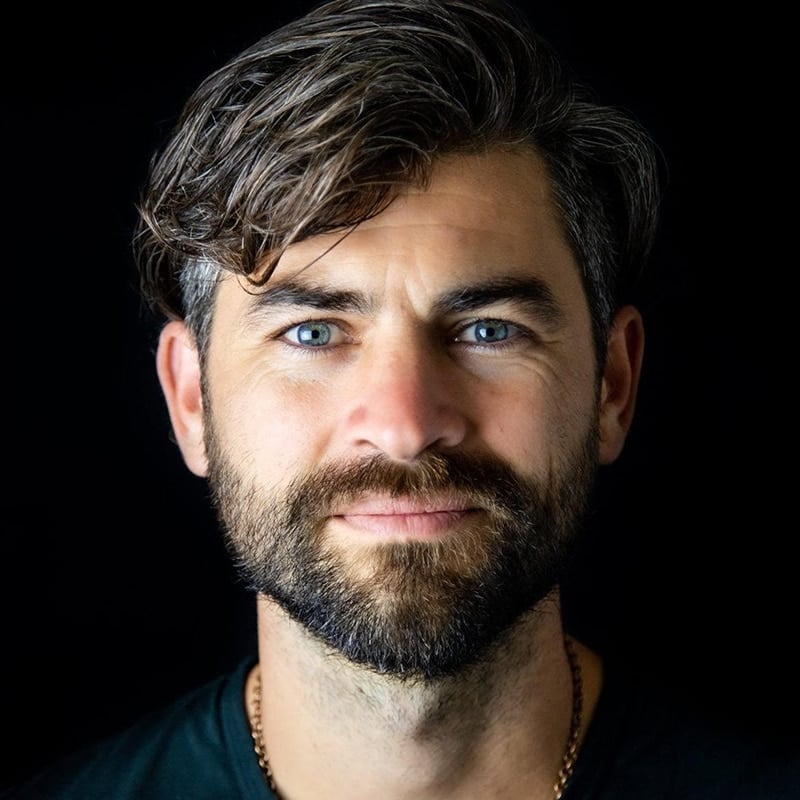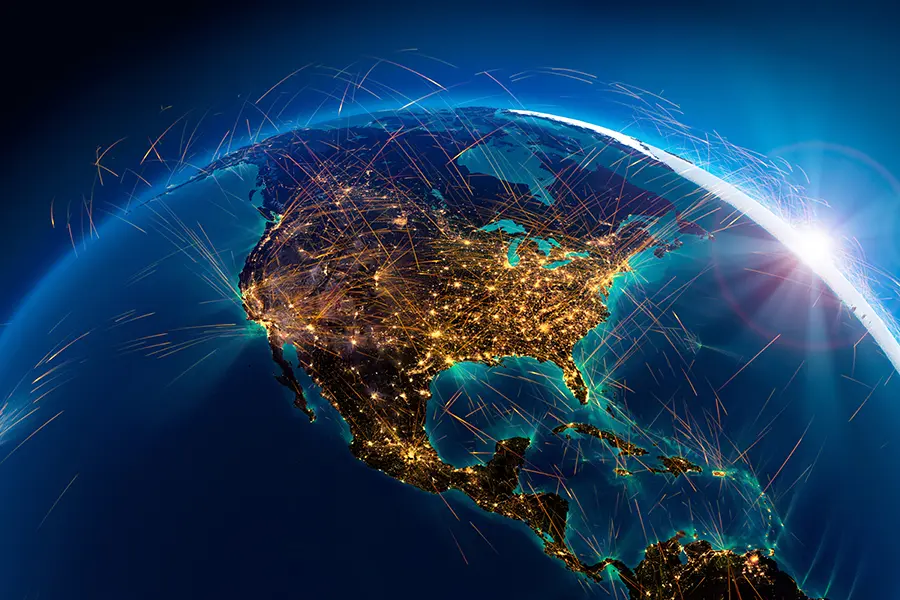“Critical thinking without hope is cynicism, but hope without critical thinking is naiveté.” — Maria Popova
Moving into 2020, it feels as if the global political landscape continues to avalanche toward authoritarianism. Europe and the United Kingdom have seen a sharp rise in anti-immigration political propaganda and a resurgence of nationalist values, while in the United States, news headlines confront citizens with shadows of fascist rule: immigrant children dying in detention centres, proposed bills to legally and violently squash peaceful protest, and a disturbing rise in hate crimes in recent years.
Even from atop my teetering perch in the States’ so-called friendly northern neighbor of Canada, it’s pretty easy to slip into cynicism and despair as we witness narrow-minded billionaires sling mud and lies, and edge-out intriguing Presidential candidates like Democratic nominees Andrew Yang and Bernie Sanders, both who’ve dared to envision an America based on the values of liberty and justice for more than just a few wealthy, white land-owners.
We’re beginning to see glimmers of hope, however, as compelling new movements rise quietly out of the ashes of the dumpster fire that is the current state of American politics.
Positioned as a 2020 Presidential candidate, Christopher Life is part of a team of millennials attempting to challenge the status quo of the political system in the United States. He’s running with the One Nation Party (ONP), a very new independent political party with a platform aimed at increasing the quality of life of all citizens and nature by “upgrading” culture and democracy and engaging in holistic conversations and creative experimentation, in an effort to transform the current systems of governance, which ONP states rely on extractivism, while keeping citizens in cycles of fear, powerlessness, and a “win-lose” mentality.
This bold—and broad—vision is rooted in concepts reflecting interconnectedness, regenerative systems, and the theories of holism and synergetics, espoused by the late architect and inventor R. Buckminster Fuller. ONP’s platform includes a range of responses to avert the kinds of crises we’ve currently found ourselves in: addressing climate and environmental collapse with a national ecological regeneration plan; a national campaign to “end modern day slavery”; upping practical measures to protect against “further systems collapse”; and creating what Life refers to in an ONP campaign video as “Heaven on Earth, today.”
Noting the subtle religious overtones of so-called planetary paradise weaved throughout the ONP platform, I was curious to connect with Life and dig into what sparked his vision. It turns out Life found his early inspirations as a child growing up in the Mormon faith, believing quite literally that Jesus would “surprise us and come out the sky one day, with angels and trumpets and everything, and declare Earth’s paradise era, and then everything would magically become heaven on Earth.” As he grew older, he began to challenge this belief system, realizing that there wouldn’t be a resurrected Jesus coming to save us anytime soon, and that “maybe we were not going to be saved by a myth, but that this myth is actually pointing to something we would have to do for ourselves.”
How to Grow Shrooms Bundle
Take Both of Our Courses and Save $90!
Digging deep into my own wells of cautious optimism about the trajectory of humanity, the ONP platform feels at first glance exciting and hopeful, while simultaneously overwhelming and impossible. Perhaps this multi-dimensional state of awareness, where we practice holding space for a myriad of potential realities, is one key to examining the vast and at this stage, rather vague proposals that ONP is putting forward.
Speaking to me from his communal home in California where he, as well as the core ONP organizing team reside, Life explains to me that ONP members “…want to ensure that all people [and] all ecosystems equally thrive; that the lens by which we make decisions is based upon that standard.” He considers the framework of decision making by folks currently in power to be immature and selfish, based on nothing more than personal gain and profit.
“The very notion that somebody can tolerate the idea of them winning at the cost of someone else is the win-lose mentality,” he continues, as he explains the paradigm-shifting, albeit rather ambiguous concept, of an “all-win” world (a core tenant of ONP). “Losing is at the center problem of our country and at a human scale.”

But it’s hard not to wonder, is ONP’s radical vision for a movement that’s rooted in societal transformation and human sovereignty even feasible? Do a small group of committed millennials have the clout and stamina to take on who they view as corrupt, power-hungry politicians?
But it’s hard not to wonder, is ONP’s radical vision for a movement that’s rooted in societal transformation and human sovereignty even feasible? Do a small group of committed millennials have the clout and stamina to take on who they view as corrupt, power-hungry politicians? Perhaps more importantly, do they have the capacity to reckon with and heal from the historical truths of 400 years of colonial America that continue to play out today—from indigenous populations facing eviction from their own lands in order to make way for destructive resource extraction, to the legacy of slavery carried on by excessive punishment and the mass incarceration of black, indigenous people of color, thanks in large part to the Drug War?
Speaking from his adopted home in Vancouver, professor of political science at The University of British Columbia, Alan Jacobs, feels that it’s important to recognize the context of an independent political party choosing to run against the dominant two-party system in the arguably problematic, first-past-the-post electoral system—particularly when the party in question has yet to make an impact with the public. “The one effect that a party like that can have is to serve as a kind of spoiler,” says Jacobs. “If they siphon votes off of the Democrats in a district, then that can end up handing the election in that district to the Republican candidate. Ironically, they’re going to end up helping the party furthest from their ideals.”
Jacobs is quick to point out that the ethos of ONP—with ideals ranging from saving the planet to securing a better quality of life for all citizens—is one that most political parties (not to mention individuals who want to see things change for the better) wouldn’t fundamentally argue with. He questions the non-specific context in which they attempt to differentiate themselves from left versus right, which he says “leaves open the heart of politics, which is essentially value conflict.” Of course, he says, “it is an irreducible fact of life in civilization that different people have different understandings of what makes for a good life; what a ‘gain’ for civilization would look like and what that means for you may not be what that means for me.“
Anti-racist trauma therapist and co-founder of Energetic Justice, Kelly Germaine, further echos Jacob’s observational critique of ONP’s call for a reclamation of politics and a return to America’s “original intent” as a nation, questioning whether the members of ONP have really sat with the difficult reality of the history upon which America was founded:
“The premise of what I hear is this idea of, how do we get back to the ideals of democracy and build a unified nation? It continues to meet this idea of, how do we help white folks really sit with the hard fact that we’ve never been ‘one nation under God with liberty and justice for all,’ and [that] there’s nothing to go back to? We’ve really been one nation under the white male god of supremacy with liberty and justice for pretty much no one.”
“The premise of what I hear is this idea of, how do we get back to the ideals of democracy and build a unified nation? It continues to meet this idea of, how do we help white folks really sit with the hard fact that we’ve never been ‘one nation under God with liberty and justice for all,’ and [that] there’s nothing to go back to?”
Germaine calls attention to the work of Mark Charles, the 2020 Presidential race’s sole Native American candidate from the Navajo nation, who, similarly to ONP, is “striving to build a nation where ‘we the people’ truly means all the people.”
Charles calls on citizens to wake up from the myth of the American dream. His extensive analysis of the core pillars of American democracy, from the Doctrine of Discovery—a series of edicts from the Catholic Church that encouraged white, European Christians to invade foreign lands, claim them as their own and enslave the indigenous populations residing there—to the Constitution, all point convincingly towards an America firmly rooted in systemic white supremacy, evident in every facet of society. He feels that only from this place of truth can the country move honestly towards healing, while supporting multi-racial coalitions rooted in the wisdom of BIPOC (Black, Indigenous, and People of Color) communities.
Initially working as a dismantling racism trainer, and later becoming a yoga teacher, Michelle C. Johnson now works at the intersection of spirituality and anti-racism, addressing the colonization of yoga as a spiritual practice in the West. “The industry of yoga works similarly to any other institutions that participated in setting up conditions that maintain systems of supremacy: White, thin, able-bodied, straight women are who the face of yoga was when I first started practicing. BIPOC folks have been excluded, tokenized and shut out from many wellness spaces.”
Johnson writes that she became interested in what it would be like to make the spiritual practice of yoga a practice of dismantling oppression, beyond the narrow scope of the wellness industry that often uses the well-worn adage of “Love and Light” as a way to avoid or by-pass what actually needs to be healed. She says yoga spaces have long encouraged people to seek “enlightenment” that is absent of any awareness or responsibility for systems of oppression.
While it’s clear that ONP has good intentions to rectify historical traumas and current inequities, stating in their priorities that they intend to provide “courageous visionary leadership” in the creation of truth and reconciliation programs for issues like slavery, Native American genocide, and gender-based violence, the question remains whether America needs yet another white male-led political movement acting independently, when there are BIPOC & LGBTQIA2S social and political movements that have long informed how white folks organize and mobilize.
Germaine comments that she’s observed this type of behavior in herself and in other white folks in movement spaces: “We get this inkling of the root systems issues, and then we get triggered, and then we want to run off and start our own movement, and we can get really grandiose with our ideas. So I think about, how do we educate folks on how real change has come through long haul mass movement building with coalitions or cross-race, rather than individual electoral runs or pushing these third parties that don’t have a lot of people behind them?”
“How do we educate folks on how real change has come through long haul mass movement building with coalitions or cross-race, rather than individual electoral runs or pushing these third parties that don’t have a lot of people behind them?”
Another symptom of white folks getting “woke” is the savior complex, which is kin to the superiority complex, which Life himself believes is rooted in domination which circles back to the “win-lose” mindset, the core of ONP’s ideology. Reducing the complexities of generational trauma and systemic racism down to a “win-lose mindset” arguably runs parallel to the concept of “oneness,” which as Johnson explains, may be a universal truth, but “culture hasn’t set up conditions for us to live as one. When we rest in the universal truth without looking at the cultural context, we cause harm.”
This harm can be as overt as the recent lynching and murder of Armaud Arbery by two white men in Georgia, to the subtle language used by folks that “we are all in this together,” which assumes that we share a common lived experience, and can therefore apply blanket repairs to address all manner of societal ills.
How to Grow Shrooms Bundle
Take Both of Our Courses and Save $90!
“As a human family, we all need to start feeling a lot more,” says Life. “There’s a lot of crying that we all need to do together.” He further explains his feeling that as more people gain awareness through deep, personal healing and transformation, over time, society will be able to effectively facilitate healing on a collective level, imagining a scenario where current civic infrastructure could be leveraged and transformed to support and share new models of care globally—which includes healing with psychedelic substances. “I have a very high amount of hope and belief that it’s approaching,” he says.
We can observe and hold space for the multitude of realities in these sentiments: that individual healing is important, and that there are demographics of folks who will have greater access to the necessary tools and resources to begin that process of healing, while also recognizing that we can’t do this alone and that there is a greater need for collective resource sharing and mutual aid in these particularly challenging times. This may require folks to hold sacred space for the uncertainty of big questions with no concrete answers, and to nurture active hope in themselves and each other—because, as Germaine wisely recognizes, “You can’t work on a problem that you believe you can’t solve.”

DoubleBlind is a trusted resource for news, evidence-based education, and reporting on psychedelics. We work with leading medical professionals, scientific researchers, journalists, mycologists, indigenous stewards, and cultural pioneers. Read about our editorial policy and fact-checking process here.

DoubleBlind Magazine does not encourage or condone any illegal activities, including but not limited to the use of illegal substances. We do not provide mental health, clinical, or medical services. We are not a substitute for medical, psychological, or psychiatric diagnosis, treatment, or advice. If you are in a crisis or if you or any other person may be in danger or experiencing a mental health emergency, immediately call 911 or your local emergency resources. If you are considering suicide, please call 988 to connect with the National Suicide Prevention Lifeline.



